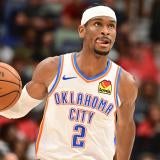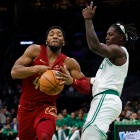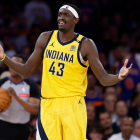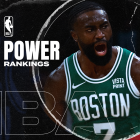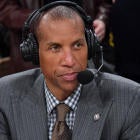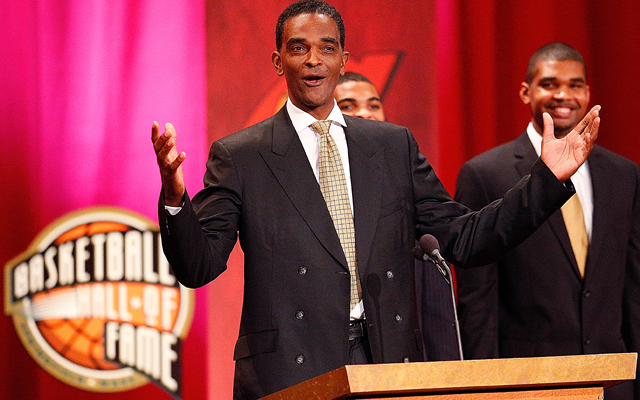 |
| Sampson entered the Hall on his accomplishments and the idea of him. (Getty Images) |
This has been said before, enough to where you can debate that it needs saying. But it's important for us to be sure:
Ralph Sampson had a good career.
Yes, it was cut short by knee injuries the year after his Houston Rockets made the NBA Finals and lost to the Boston Celtics. And, yes, his efficiency was never anything to write home about the way so many Hall of Fame players' was.
But Sampson showed something in both his time at Virginia, where he was more legend than mortal, and his time in Houston, where he brazenly faced down the gods of the 1980s before his body cut his career short. He was a big man with versatility. Not just skill, but versatility. And while there had been some of those type players, and some great ones, throughout the league's history, Sampson entered just when the NBA was beginning to turn, when its popularity was starting to strike, when the exposure was beginning to come.
He was in so many ways more than what you would expect from a big man, with the turnaround jumper, the hook shot, the long-range capability and the ball-handling. He was some sort of nexus of all those skills wrapped in a 7-4 frame. Give Andrew Bynum four inches and have him run the floor with the ball. That's how terrifying he was.
You can look back on how the greats of that decade revered Sampson when he was healthy. Magic. Bird. Jordan. Barkley. They knew how physically imposing and multi-talented he was.
But that same praise he brought with him from college also meant enormous consequences for his pro career. He was supposed to be something wholly different, and consistent. But he didn't land in the right spot, nor did he have the physical toughness to reach a higher level.
His first season would be his best, and despite being given the gift of Hakeem Olajuwon, fate had other ideas. His career would never touch what it could have been, and you can make the argument that Sampson entered the Hall on Friday night because of what he was supposed to be rather than what he was.
Sampson never had the audacity to ram the ball down the opponent's throat, and that might have been the biggest deciding factor in his career. With his size, there was never any doubt he could dominate. But playing well was enough for him, then playing was enough for him, then getting paid was enough. But that doesn't remove him from being worthy of the Hall. In the sport's history, Sampson stands as tall as anyone simply because of what he represented.
In his acceptance speech, Sampson admitted he didn't love basketball as a kid. He loved baseball. But he said he learned to "value basketball." That's a huge diffferential, and it shows when you see the film of him.
But you can love the game and not be great. You can play for a decade and not be great. You can want to dominate and not be great. Sampson was great, if only in college and for a short time. In a world in which so few can climb the mountain, the ones who touched the sky even for a moment deserve their time in the sun.










